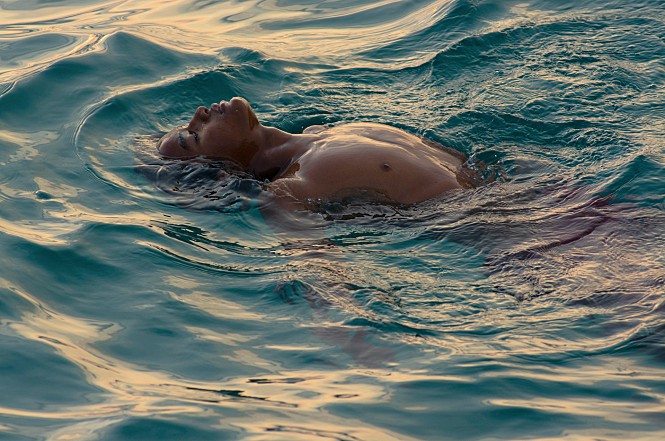
“Buoyancy”, which was selected as Australia’s submission to Best International Feature Film Oscar in last year, is often chilling to watch in its fictional representation of real-life modern slavery. As told to us at the end of the story, what is depicted in the film is not so far from what is still happening somewhere in Southeast Asia even at this very point, and the movie did a fairly commendable job of conveying the horrific sides of its subject without resorting to cheap exploitation.
At the beginning, the movie shows us how its 14-year-old Cambodian hero, named Chakra (Sarm Heng), comes to decide to leave his rural hometown. Frustrated with being poor without any money for him all the time, Chakra has always wanted to get away from his poor family and his hometown, and then, via a friend of his, he comes across an opportunity of going to Thailand for earning some money. Although nothing is certain and he does not even have enough money for a broker to take him to Thailand, he becomes quite determined to go to Thailand, and he eventually leaves his hometown early in the morning without saying anything to his family.
At first, everything seems to go well for Chakra. When he tells the broker that he does not have any money, the broker simply instructs him to go to a certain place where many other people are already waiting for being taken to Bangkok, which certainly looks better than to Chakra considering that he has probably never been outside his hometown throughout his whole life.
Of course, Chakra comes to face harsh reality as soon as a vehicle takes him and several other people to the port. They all are taken to a small ship, and he and one fellow Cambodian guy are later transferred to a fishing boat, where they are promptly demanded to work along with a few other workers on the boat. Once their worktime is over, they and other workers all go inside a stuffy cabin where they have to sleep together side by side, and another day soon begins with the angry shout from the captain of the fishing boat.

As closely observing this grueling routine of theirs, the movie slowly lets us immersed into their grim circumstance. During daytime, they are constantly forced to handle tons of many different fishes captured from the sea, which, as one character says at one point, will probably be used for producing animal feeds. Although most of the workers on the fishing boat do not know Thai, all the captain needs is shouting a lot to them, and they have no choice but to follow whatever this dude demands.
Chakra innocently hopes that he will get paid eventually as long as he always obeys to the captain, but the captain and his two cronies remind Chakra again and again of how cruel and ruthless they can be to Chakra and other workers on the boat. While not promising anything at all, these deplorable bastards callously disregard Chakra and other workers, who are all expendable and replaceable in their depraved viewpoint. Regardless of whatever happens on the boat, Chakra and other workers have to remain silent and obedient, because, well, there is no one to help them in the middle of the ocean.
As Chakra slowly descends into the dark pit of human evil and brutality, the movie gives us several gut-wrenching moments which will make you wince more than once. In case of a scene featuring one savage act of killing, we are thankfully spared from its gory details, but it feels emotionally devastating nonetheless as we can sense how much our young hero is affected by the consequence of what he is coerced to participate in.

The story becomes darker and more disturbing during its second half, but director/writer Rodd Rathjen, who received the Prize of the Ecumenical Jury when the movie was shown at the Berlin International Film Festival early in last year, keeps sticking to his calm and restrained storytelling approach as before. While occasionally providing plain but undeniably striking visual moments including the one showing our young hero having a brief moment of respite on water, cinematographer Michael Latham vividly establishes the claustrophobic atmosphere around the characters on the screen, and the sparse score by Lawrence English is succinctly used in a number of key moments without any unnecessary distraction.
Rathjen also draws the good natural performances from his cast members. As the center of the film, young performer Sarm Heng is believable in his character’s gradual transformation along the story, and he is utterly heartbreaking in the last shot of the film, which depends a lot on his face for reflecting what has been lost forever from his character. As the main villain of the film, Thanawut Kasro is alternatively disgusting and frightening as required, and Mony Ros is also effective as a crucial character who functions as a voice of conscience and decency to Chakra in the story.
Overall, “Buoyancy” is definitely not something you can easily watch on Sunday afternoon, but it delivers well its urgent social issues via its simple but thoughtful storytelling and raw but competent filmmaking, and I admire how it skillfully avoids sensationalism while never softening the horror of what its young hero is going through. Yes, this is another grueling arthouse film, but I assure you that it will linger on your mind for a long time once it is over.







